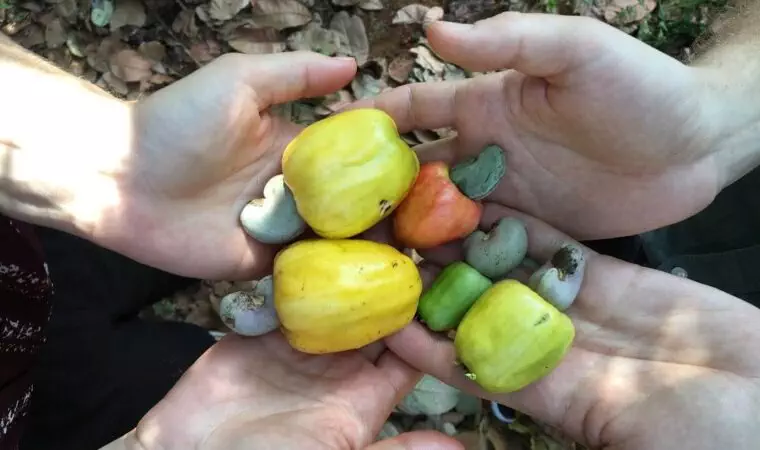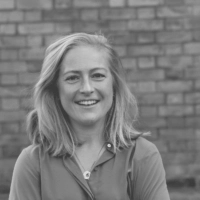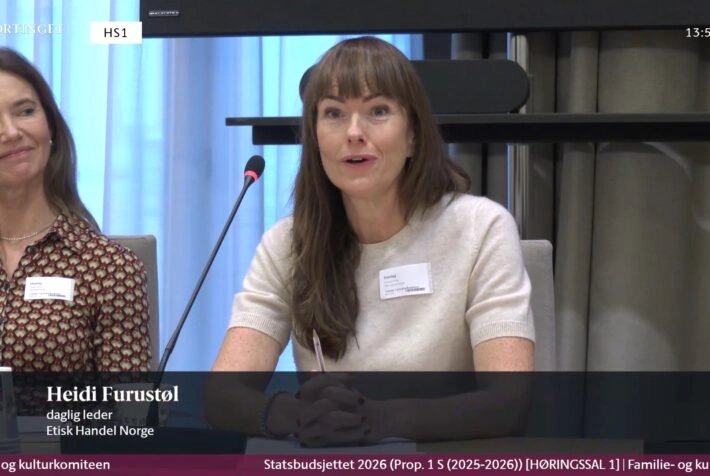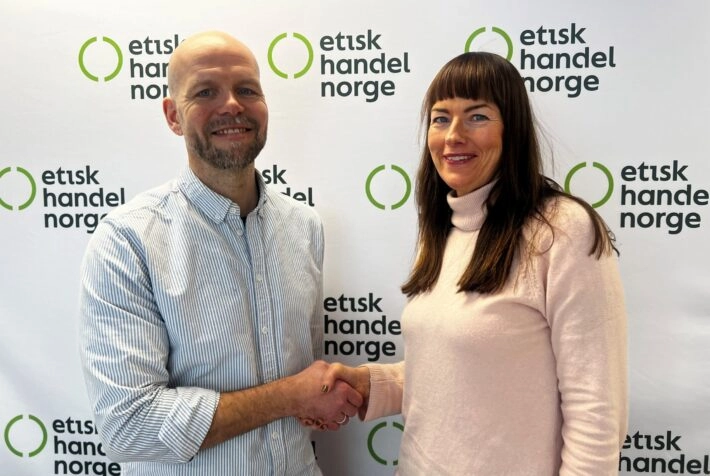They met with cashew farmers and their organisations as well as the Vietnam Cashew Association and Vietnamese cashew processors. Here are some impressions from their trip.
Weaver ants keep pests away
An important objective of the project is to assist farmers with growing more and better-quality nuts, using less pesticides. To achieve this, the project funds training sessions on good agricultural practices, where trained farmers teach good practices to their peers. On the morning of the 18 January, the Ethical Trade Norway team attended a training session on how farmers can use weaver ants to keep pests away. The weaver ants prey on insects harmful to their host trees and are therefore natural biocontrol agents. During the training the farmers exchanged experiences on how they succeed using ants and after the training they stay connected in a social media group to continue the dialogue. By 2024, 240 farmers will have received ten modules of training in good agricultural practices.

Farmer training in Binh Minh commune, Binh Phuoc province
Multi-stakeholder visit to factory Long Son
A group of stakeholders from the cashew supply chain including farmer’s organisations and processors were invited to visit a Long Son JSC cashew processing plant. Several of the participants from other processors had attended trainings on Social Dialogue and Labour Standards provided by the project. Long Son JSC is one of the largest cashew processors in Vietnam. During the visit, Long Son shared their approach to complying with new European sustainability regulations, both on social and environmental issues. Ethical Trade Norway gave a presentation of what the likely effects of the new regulations like Norwegian Transparency Act and the European Corporate Sustainability Due Diligence Directive (CSDDD) are likely to be on suppliers to the European market: more but uniform requirements; a need for verifiable data and probably an increased interest in audits like SMETA and BSCI. We also highlighted how the new regulations should lead to more collaboration and more responsible purchasing practices.

Presenting Ethical Trade Norway and upcoming sustainability regulations at Long Son factory

The farmer organisations in Binh Phuoc, the leading cashew producing province in Vietnam
2024 harvesting season looks promising
The harvesting season of cashew nuts in Vietnam was a few weeks away and the cashew trees were in full bloom. Here and there cashew apples were starting to ripen, in colours of green, orange and yellow. Once the cashew apple falls to the ground, the raw cashew nut is ripe and should be picked as soon as possible to preserve quality. The apple can be eaten raw or used to produce juice or even an alcoholic syrup. Vietnamese cashew farmers are mostly smallholders, with 1-4 hectares of land where they together with cashew often also cultivate other tree crops like coffee and pepper. The farmers highlight that climate change is adversely impacting crops, as they have experienced intense rainfall during the harvesting season in recent years. However, the farmers we met seemed confident that the 2024 season would be a good one.

Cashew apple and raw cashew nuts in colours of green, orange and yellow
Next steps for the project
In 2024, the project will continue implementing the training programme for farmers and also work closer with cashew cooperatives. More trainings on labour standards and social dialogue will also be given to cashew processors.
For more information, contact project manager Rikke Mohn Halvorsen, rikke@etiskhandel.no




